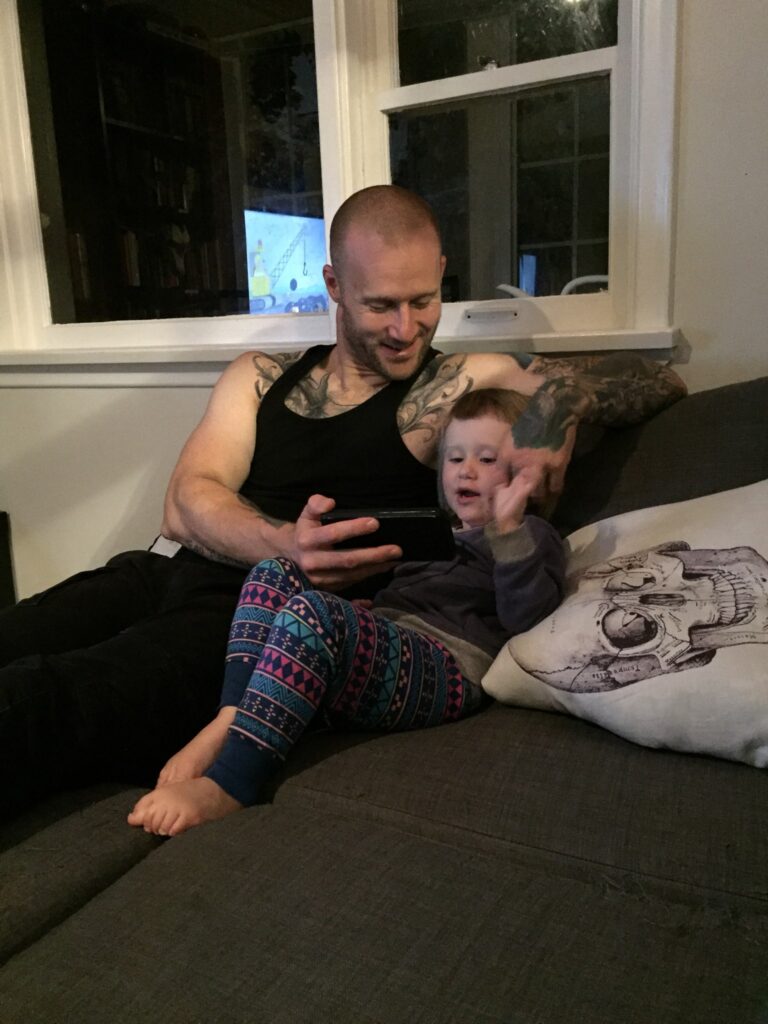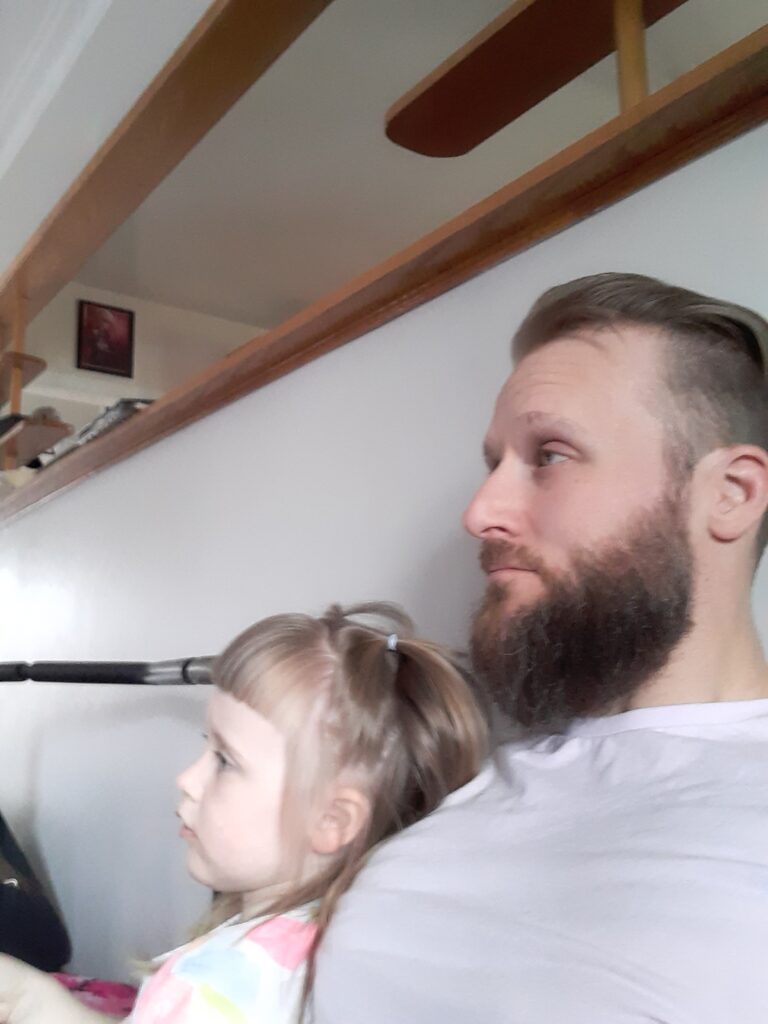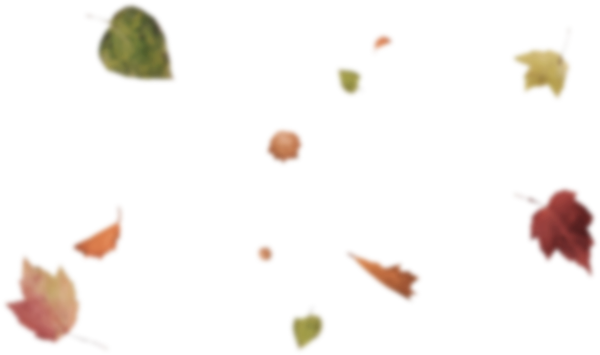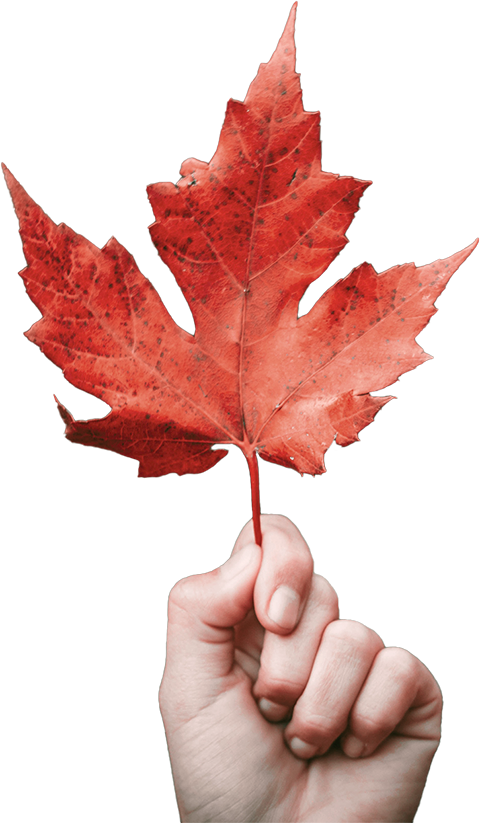I was diagnosed with level one autism late in life at the age of thirty-two. After my own diagnosis I reached out to my family because many of my siblings have similar behaviours to my own and after all was said and done it turned out that all of my siblings, my mother and my uncle are all on the Autism spectrum. It is only because of the strong hereditary component in my family that I was able to get my daughter examined early, before the age of two, and she was also diagnosed with level one Autism.
My daughter is an absolute sweetheart, a fathers dream and an ideal child. She is kind and always smiling, very bright and constantly curious and engaging, in her own way. However she has been challenged in her language development and doctors I have spoken to estimate her language to be delayed by about a year. So while she is not yet three years old her milestones, markers of her development in language and other areas, are that of a two year old. No big deal, some kids take a bit longer. As my grandmother often said, “that’s the way the mop flops and the cookie crumbles.”
I take my daughter outdoors for about three hours total every single day. Education experts across the world have been building a considerable body of evidence that paints a clear picture regarding outdoor activity and how it affects children. In trial school programs running in Sweden and Japan classes are taught entirely outdoors for the entire day. Children tested in these programs have shown double the average I.Q. compared to peers in routine school programs so I am prioritizing outdoor play for my daughter.

The other day my daughter was on the jungle gym, one with a slide attached at one end of a long walkway. My daughter, like so many children with Autism, doesn’t point so much as she “hand leads.” That is to say rather than point at cookies and say “cookies please” she will take my hand and walk me to the cookie jar and say “key-keys” or rather than point out of the room and say “go away” she will push me out of a room gently when she wants privacy. So on the playground things can get confusing for her, when for example she gently pushes an older boy blocking the slide out of her way.
The first time I witnessed her do this I was concerned. I sort of caught my breath and thought to myself, “oh God is she bullying? Have I raised her to bully?” I was really filled with anguish and briefly thought myself a terrible father. All parents have such moments. Ironically these moments of self-doubt are what make us good parents.
Then I realized that my daughter was hand leading the boy, not bullying.
I myself am on the Autism spectrum and even I took a moment to fully grasp my daughter’s manner of interaction with a neural-typical boy on the playground. Only because I am a man on the Autism spectrum did it occur to me that my daughter was, in fact, hand leading. She is not even three years old but she is wearing a size six toddler, she is a big kid and she is physically gifted like her father. She broke her arm in a fall when she had just turned two and barely felt it. I only knew her arm was broken because she stopped using it after her fall, not because she cried, she barely made a sound. Such is life with hyposensitivity.
The other parents brought her “hand leading” to my attention,
“Do you think she should be shoving boys like that?” One said.
“She is bigger than that boy she pushed, maybe you should speak to her?”
I explained that she was actually not yet three years old and that she was on the Autism spectrum. I explained hand leading. The other parents seemed to think my daughter should still be “taught” that touching kids is bad. The thing is, it isn’t.
Kids touch and play because they are kids. The boy was not injured or upset and he actually began following my daughter down the slide even though she showed no interest in other children. The little boy still tried to play with her and even talked to me about her, asking me for her name.
Imagine what my daughters life and childhood might be like if I didn’t know about her being on the Autism spectrum? Imagine how her hand leading might otherwise have been misread as “rough housing” and then summarily punished? For my daughter hand leading is a method of communication, one she uses in the absence of her developing verbal skills. If I punished her for hand leading I would essentially be punishing her for communicating. How much damage would I have done if I had mistakenly punished my daughter for communicating?

I am writing this to spread awareness to parents. I wasn’t diagnosed as a man with Autism until I was in my thirties and only knew to look for it in my daughter because of my family heredity of Autism. Many parents won’t be diagnosed until later in life and some might never be. What chances does a child with autism have if they are undiagnosed? Hand leading can be perceived as bad behaviour without knowledge of Autism and that is just one of many challenges for a parent with a child on the Autism spectrum.
If you are a parent and you see behaviours that don’t fit the “normative” expectations please consider having a discussion with that child’s doctor or teachers and peers. The difference between my daughter being punished for “bullying” and being punished for communicating via “hand leading” is a matter of Autism awareness.
Spread the word on Autism. Spread hope.
Sean Leal is on a mission to advocate both for mental health awareness and for Autism awareness as well as care. After looking back on the tragedy and abuse he suffered in his childhood he spent eight years in therapy and was diagnosed with level one Autism at the age of thirty-two. After his diagnosis other members of his family were tested for ASD as well. His brother, sister and uncle have been formally diagnosed with ASD as well as several of their children.
After helping his family learn more about the Autism spectrum he is very excited to be given the opportunity to volunteer and write for ASO. It is his hope that the book he has written, an autobiography of his life, will one day be published so that he might pursue his dream career of being a writer and published author. He considers his autistic traits to be a gift, they absolutely are the reason he survived what he did and he is proud to be on the spectrum.


